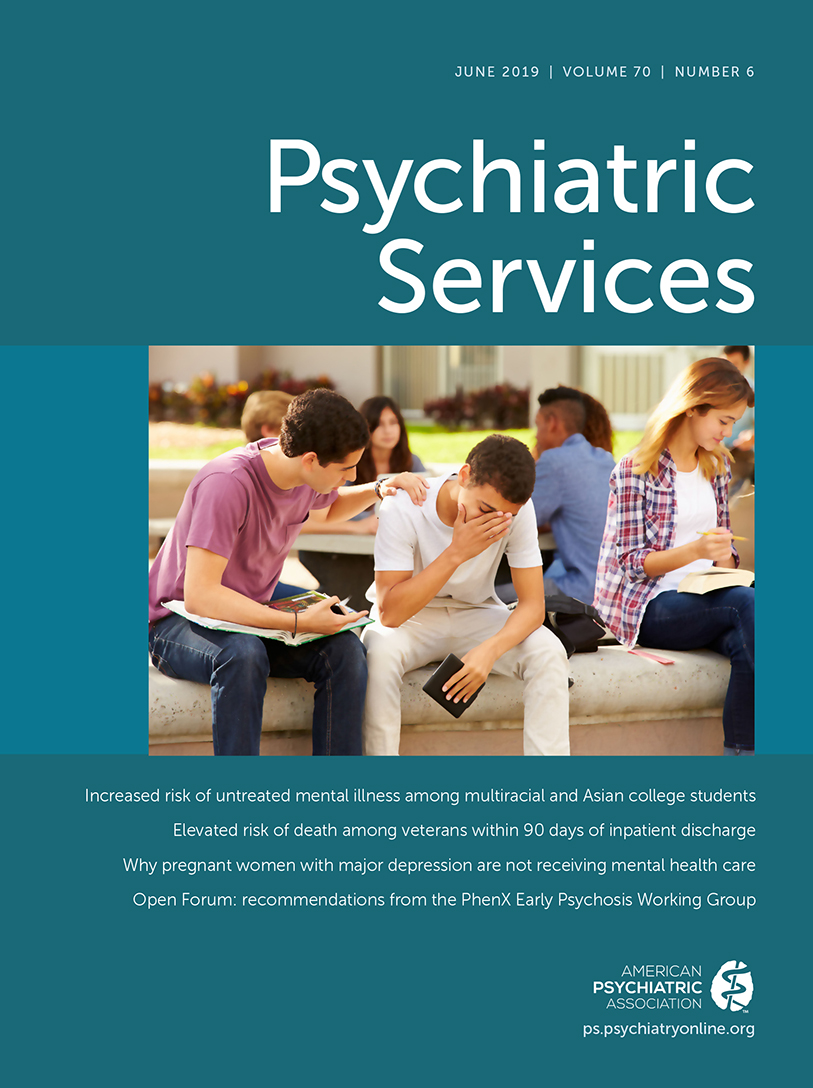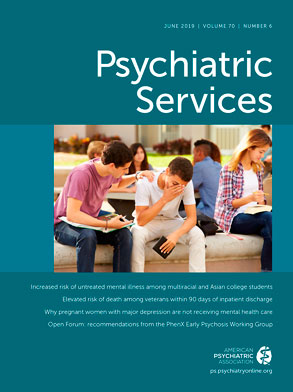TO THE EDITOR: We are grateful for and energized by Freeman et al.’s (
1) and Mueser’s (
2) attention to Open Dialogue (OD) research. The point of the Freeman et al. review, that OD outcome literature has a “very low quality of evidence,” is well taken, with some exceptions. Multiple studies (
3) report that it reliably cut rates of chronicity and disability in schizophrenia by half and was highly cost-effective compared with geographic and historic control groups. As Freeman et al.’s review notes, blind evaluation, improved controls, and correction of math errors are essential for future research, but whether such increased rigor would have changed important real-world results, such as disability status, is unknown. I expect that Freeman et al.’s statement that “no strong conclusions . . . about the efficacy of OD can be drawn from the current available evidence” will inspire Freeman et al. when they implement and analyze ODDESSI (Open Dialogue: Development and Evaluation of a Social Network Intervention for Severe Mental Illness).
Mueser’s opinion that the “data on Open Dialogue are insufficient to warrant calls for further research” does not follow from his summary of the Freeman et al. review. Incomplete implementation or methodology is not evidence of weak treatment effect. Government-level support may be necessary to assess such a comprehensive model with fidelity. This raises the problem Mueser mentions of competing interests. In the United States, where many of the ideas that evolved into OD originated, the National Institute of Mental Health has declined to pilot OD on the unscientific grounds that “its paradigm is too different” for some stakeholders (personal communication, Fisher D, 2013).
Mueser describes OD, in use for 30 years, as “radically . . . new” and “highly novel,” although it is largely an integration of elements long known to mitigate psychosis, including need-adapted treatment, collaborative family therapy, relational psychoanalysis, Soteria, and moral treatment. The possibility, however, that a primarily psychosocial approach such as OD could be highly effective challenges cherished assumptions about schizophrenia. OD’s agnosticism about biological treatments and its radical call for surrender of professional privilege, for example, sometimes generate painful cognitive dissonance among professionals.
Mueser’s implication that OD might be the work of a “wunderkind” therapist overlooks the participation of hundreds of family and network members integral to recoveries achieved and that OD is inherently a team approach. Mueser’s idea that OD lacks real-world testing is also surprising, because the weaknesses of its evidence base are related to real-world implementation problems.
The social cost of serious type II error—prematurely rejecting an approach that might resolve over half of schizophrenia diagnoses (the rate of recovery found by long-term studies on nonbiological methods [
4])—is potentially great. The “incremental progress of research on more traditional treatment” that Mueser prefers may actually be regress, with a 6% rate of full recovery from schizophrenia now the norm in the West, down from 18% 70 years ago (
5). Why foreclose on a promising practice in favor of an approach already exhaustively studied, with disappointing and even diminishing returns?

